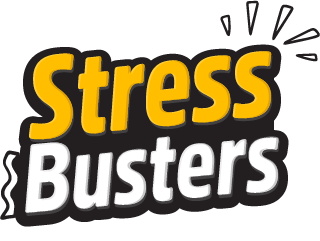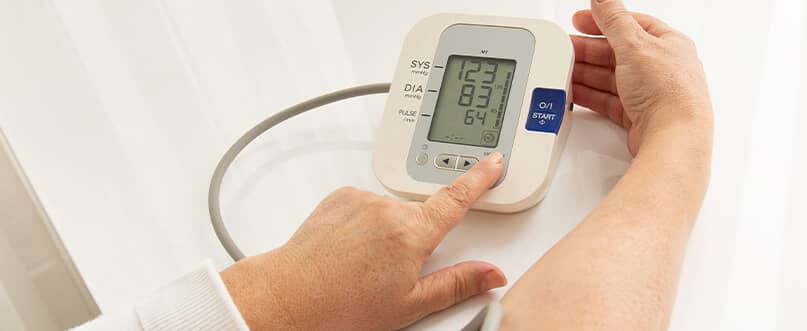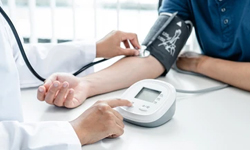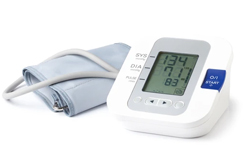
Taking Blood Pressure, Accurately and Seriously

Table of Contents
Measuring your blood pressure regularly is an essential, sometimes life-saving procedure that can help diagnose severe medical conditions. But it’s not always easy to take your blood pressure correctly or with the right equipment, and there are many places where you can go wrong. This post will tell you how to take care of yourself by taking care of your blood pressure.
When you think about blood pressure, it’s easy to dismiss it as something that doesn’t affect most people. But the truth is high blood pressure kills more than 1,100 Americans every day; in fact, it’s one of the leading causes of death and disability across our country. That means we need to take care, so we don’t become a statistic ourselves.
So Why Are People Not Taking It Seriously?
According to the CDC, only about ½ of those with high blood pressure adequately control their condition. In addition, some are unaware that they have high blood pressure, while others may be reluctant to take medication because it can cause unpleasant side effects such as headaches and dry mouth. Yet, many people who experience these symptoms still don’t seek treatment for fear of becoming addicted or being seen as a drug addict by friends and family members due to common misunderstandings around prescription medications.
Blood pressure is one of the most critical measurements in your life, yet many people do not measure it correctly. Many times when you measure blood pressure at a doctor’s office, the reading can’t be trusted because high readings occur with little to no warning about 50% of the time. This means that if you have or suspect high blood pressure, then monitoring your numbers away from an office setting is crucial for getting accurate results and addressing any concerns before things get worse.
Monitoring your blood pressure is vital to making sure that you stay healthy. If it’s too high, consult your doctor immediately.
The Concept of White Coat Hypertension
The white coat effect is a term that refers to people’s blood pressure being higher when they are in the presence of medical professionals. This condition has been known as “white coat hypertension” because patients who exhibit this behaviour typically have normal readings for their home or office visits.
Why Is It Essential to Get Your Blood Pressure Checked Regularly and Accurately?
Research has found that people often don’t even know they have high blood pressure, and because of this, it is best to monitor your BP regularly. In addition, the condition rarely shows any symptoms, so if you are feeling dizzy or lightheaded, these could be signs of a more serious health concern that should not go untreated.
To live a healthy life, everyone of all ages needs to keep track of their blood pressure. If your numbers are too high or fluctuating wildly from one time you check them, then there might be something wrong with the way you’re living, and this needs attention to not develop into anything serious later on down the road.
The Right Way to Measure Blood Pressure
It’s important to get the right size cuff for your arm. Well-rated monitors are a small investment that could save you from getting hypertensive crisis or worse if taken care of regularly. Take time to sit quietly before taking blood pressure, make sure cuff is on the bare arm, not over clothes, vary when checking it so the doctor can see all results at next appointment – any more than 180/120 mm Hg should be addressed with medical professionals immediately because it means an emergency may have occurred in some way. Doctors will immediately proceed with hypertension treatment for such patients.
Conclusion
High Blood Pressure (HBP) is a severe condition that can lead to heart disease, stroke, and kidney failure. People of all ages need to take it seriously by visiting their doctor regularly. If you’re currently taking medication or have high blood pressure, make sure your prescriptions are up-to-date so you don’t experience any side effects like headaches, dizziness, or dry mouth.
Remember the following tips when managing your blood pressure: eat healthy foods low in sodium; drink alcohol only occasionally; get some exercise three times per week; stop smoking if you smoke now; manage stress levels through relaxation exercises and activities such as meditation or yoga–and always remember to keep an eye on your weight! And finally, never wait until symptom of high blood pressure shows before visiting your healthcare provider.
DISCLAIMER
This article does not substitute the need for expert medical advice when needed. Talk to your healthcare provider about worrying signs of high blood pressure.
Disclaimer
The information contained in this article is to educate, spread awareness in relation to hypertension and other diseases to the public at large. The contents of this article are created and developed by BPinControl.in through its authors, which has necessary, authorisations, license, approvals, permits etc to allow usage of this articles on The Website. The views and opinions expressed in this article are views, opinions of the respective authors and are independently endorsed by doctors. Although great care has been taken in compiling and checking the information in this article, The Website shall not be responsible, or in any way liable for any errors, omissions or inaccuracies in this article whether arising from negligence or otherwise, or for any consequences arising therefrom. The content of this article is not a substitute for any medical advice. The Website shall not be held responsible or liable for any consequence arising out of reliance on the information provided in the article.






Comments (0)
No comments found.Add your comment